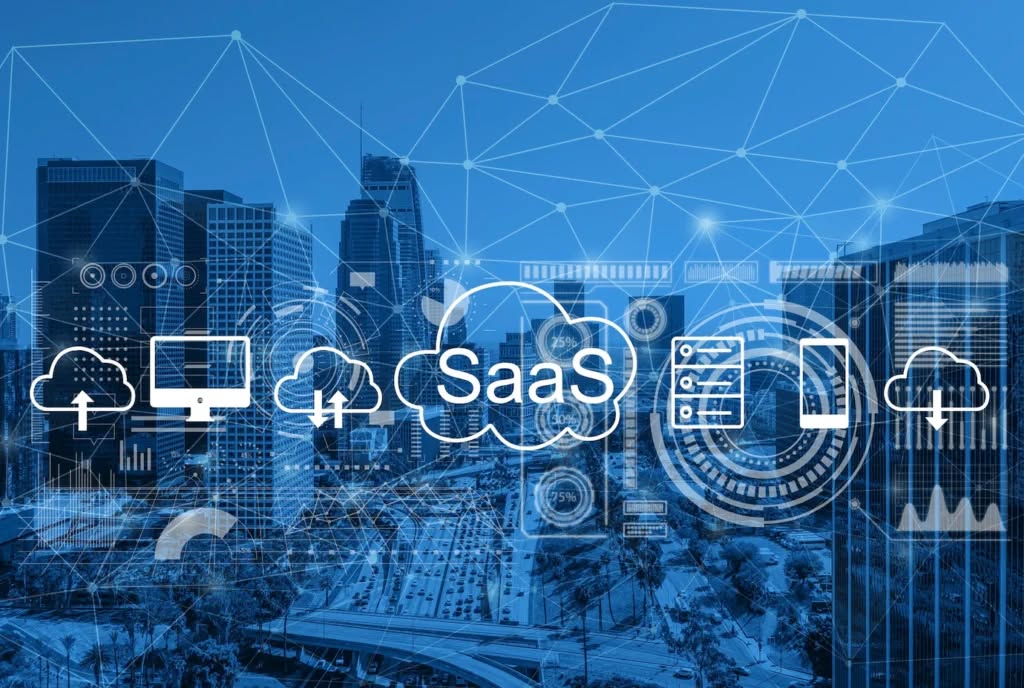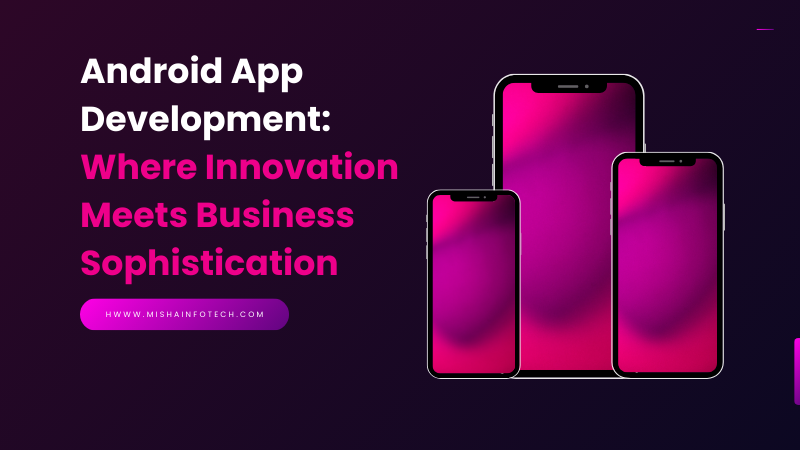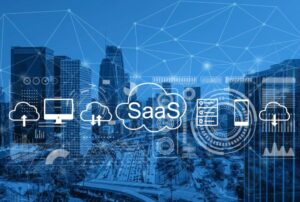In today’s digitally driven world, large organizations depend on powerful, scalable software to manage operations across teams, departments, and locations. As enterprise demands grow more complex, Enterprise SaaS (Software as a Service) has emerged as the ideal solution—delivering flexible, cloud-based applications that eliminate the need for heavy infrastructure while enhancing productivity and collaboration.
At Misha Infotech, we help enterprises adopt and integrate cutting-edge SaaS technologies that are secure, scalable, and future-ready. This guide explores the true value of enterprise SaaS in 2025, why it’s rapidly being adopted, and how your business can harness its full potential.
What Is Enterprise SaaS and Why It Matters
Enterprise SaaS refers to cloud-based software solutions tailored for large businesses with advanced workflows, extensive teams, and cross-functional collaboration needs. Unlike traditional software, SaaS doesn’t require installation on individual machines. Instead, it’s accessible through secure logins—managed, updated, and hosted by the provider.
From managing HR and finances to streamlining operations and improving customer experiences, enterprise SaaS platforms unify complex functions into a single ecosystem. This centralized approach saves time, reduces IT overhead, and allows leadership to focus on innovation and business growth.
For more details check our webpage: https://www.mishainfotech.com/software-development
Why SaaS Adoption Is Booming
The shift to SaaS is more than a tech upgrade—it’s a strategic move driven by five core benefits:
- Workplace Flexibility: SaaS applications can be accessed from anywhere, empowering remote teams and enhancing collaboration.
- Lower Upfront Investment: Businesses avoid large capital expenses and instead pay subscription fees, which makes budgeting predictable.
- Easy Integration: Most SaaS tools integrate seamlessly with existing enterprise systems, enabling smooth data exchange and process alignment.
- Real-Time Analytics: Built-in dashboards and reporting tools offer insights into performance, helping leaders make informed, data-driven decisions.
- Scalability: SaaS solutions grow with your team, making it easy to add users or expand capabilities as your business evolves.
SaaS vs. Traditional Software: Key Differences
Traditional software demands manual updates, on-premise servers, and in-house IT maintenance. In contrast, SaaS provides:
- Automated updates and maintenance
- Browser-based access
- Cloud storage for seamless collaboration
- Faster deployment cycles
SaaS also supports real-time collaboration, allowing teams across locations to work on shared documents or projects without conflicts.
Challenges to Consider
While Enterprise SaaS offers numerous advantages, organizations must plan carefully to overcome these common challenges:
- Data Security: As data is stored externally, it’s crucial to choose a provider with strong encryption, compliance certifications, and clear data governance.
- Internet Dependence: A stable connection is necessary for uninterrupted access.
- Limited Customization: Some platforms may not offer deep customization, which can be limiting for niche industries.
- Vendor Lock-in: Migrating data or switching platforms can be time-consuming and costly.
At Misha Infotech, we help you assess these risks upfront and build a SaaS roadmap that balances flexibility with control.
Use Case: SaaS in Field Service Management (FSM)
Industries such as Field Service Management (FSM) offer a great example of how enterprise SaaS is applied in real-world operations. Companies managing assets like utilities, manufacturing equipment, or infrastructure need robust solutions that handle scheduling, workforce management, asset tracking, and customer history in one place.
Check Our Latest Facebook Post: https://www.facebook.com/share/p/16c5Mt3SgS/
Wello Solutions, for example, is an enterprise-level SaaS platform tailored to FSM needs. It supports job scheduling, invoicing, real-time technician tracking, and equipment history logs—making it a powerful tool for asset-intensive sectors.
In contrast, micro SaaS solutions cater to smaller teams or single-use cases, like home repair services with basic tracking needs.
Popular Enterprise SaaS Platforms
Here are some globally trusted platforms already empowering large organizations:
- Oracle NetSuite – ERP for finance, supply chain, and operations
- Salesforce – CRM and sales process automation
- SAP Ariba – Supplier management and procurement
- Workday – HR, payroll, and workforce analytics
- InfoNgen – Advanced data insights and content aggregation
Each of these solutions offers enterprise-grade performance, high-level security, and advanced integration capabilities.
How to Select the Right SaaS Solution
Choosing the right enterprise SaaS tool involves more than comparing features. Here’s a step-by-step approach:
- Define your goals: Identify the specific problems you want to solve.
- Check integration: Ensure it works with your existing infrastructure.
- Prioritize security: Look for providers with robust encryption, compliance (e.g., ISO, GDPR), and access controls.
- Scalability: Select a solution that can grow with your business.
- Evaluate support: Responsive customer support is essential for ongoing success.
- Understand pricing: Review all cost components—user licenses, data storage, support fees—to avoid surprises.
Best Practices for a Smooth SaaS Transition
Once you choose your SaaS platform, ensure a successful rollout by:
- Communicating with your team: Explain the benefits and rollout plan.
- Providing training: Help users gain confidence with tutorials or workshops.
- Monitoring adoption: Track usage and fix bottlenecks quickly.
- Setting permissions: Protect sensitive data by managing user roles.
- Regularly reviewing performance: Continuously optimize your system to align with evolving business needs.
What Sets Enterprise SaaS Apart
Enterprise SaaS platforms are purpose-built for scale, integration, and security. Unlike basic software or small-business SaaS tools, enterprise SaaS offers:
- Advanced user and permission management
- Enterprise-grade analytics and reporting
- High availability and reliability
- Deep API and third-party system integration
This makes enterprise SaaS ideal for organizations managing multiple departments, workflows, and data sources—requiring both power and precision.
Looking Ahead: The Future of Enterprise SaaS
As digital transformation accelerates, enterprise SaaS will play a central role in enabling agility, innovation, and growth. With AI-powered insights, predictive analytics, and low-code integrations becoming standard, the enterprise SaaS of the future will be even more intelligent and intuitive.
At Misha Infotech, we’re helping businesses prepare for this future with tailored SaaS consulting, implementation, and support. Whether you’re exploring cloud migration, system integration, or building a custom SaaS product—our experts are ready to help you lead in 2025 and beyond.
📩 Need help selecting the right SaaS solution or modernizing your enterprise stack?
Let’s talk. Contact Misha Infotech today for a free consultation.













